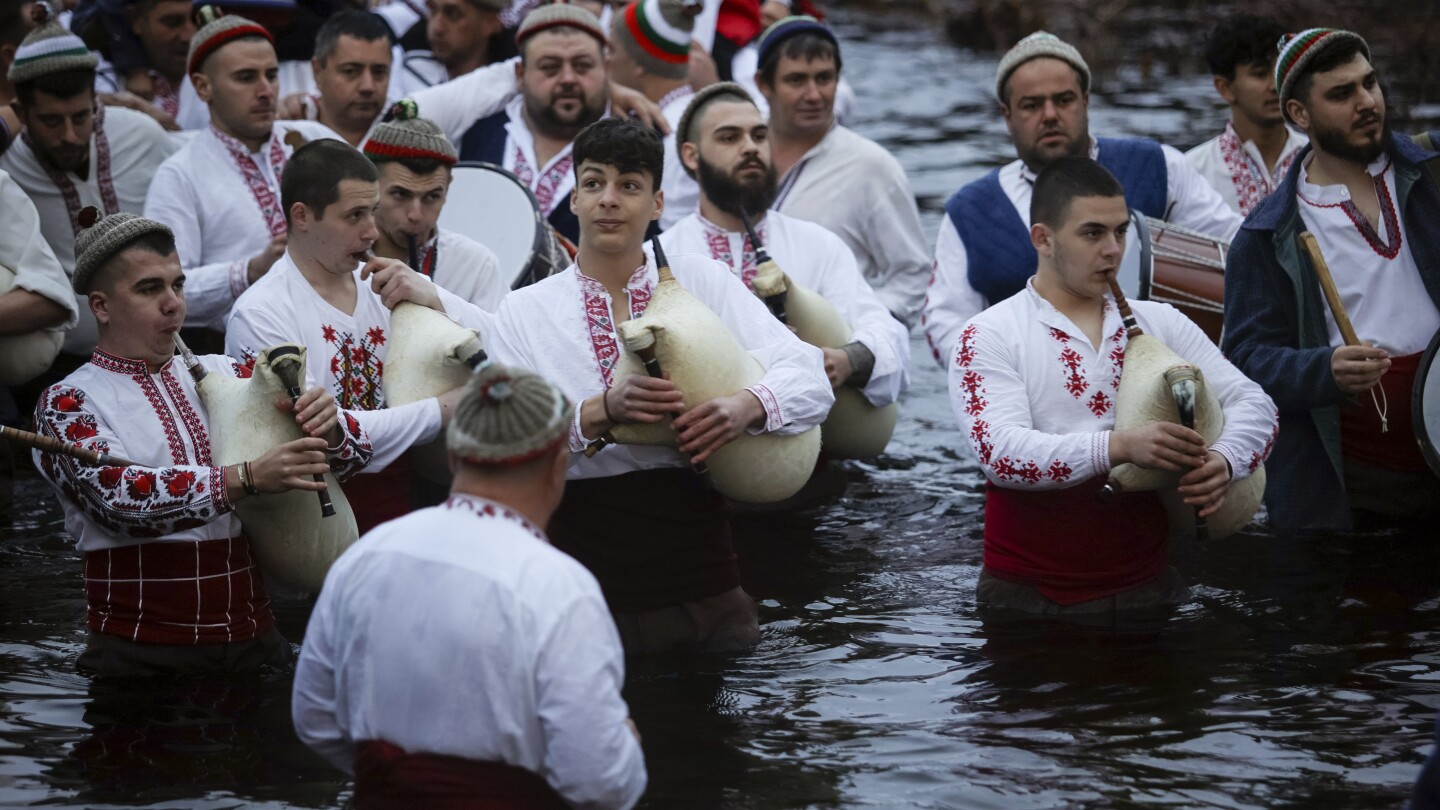SOFIA, Bulgaria (AP) — Thousands of Orthodox Christian worshippers dived into the wintry waters of rivers and lakes across Bulgaria on Saturday to retrieve crucifixes cast by priests in Epiphany ceremonies commemorating the baptism of Jesus Christ.
The legend goes that the person who retrieves the wooden cross will be freed from evil spirits and will be healthy throughout the year. After the cross is fished out, the priest sprinkles believers with water using a bunch of basil.
The celebration of Epiphany, or the Apparition of Christ, as Bulgarians call it, began in the capital, Sofia, with a water-blessing ceremony. Senior Orthodox clergy said prayers for the prosperity of the people and blessed the colors of representative army units — a tradition abandoned in 1946 and re-established in 1992.
The most attractive Epiphany ceremony was held again in the small mountain city of Kalofer in central Bulgaria, where dozens of men wearing traditional white embroidered shirts waded into the Tundzha River to perform the traditional slow “mazhko horo,” or men’s dance.
Up to their waists in the freezing water and holding each other by the shoulders their dance chain meandered for half an hour through the rocky riverbed. Inspired by bass drums and bagpipes and by a sip of homemade plum brandy, the dancers were waving national flags and singing folk songs.
Apart from the unique river dance, the event in Kalofer stands alone with the tradition that the man who retrieves the cross hands it to the youngest participant who receives the blessing for good health.
Epiphany marks the end of the 12 days of Christmas, but not all Orthodox Christian churches celebrate it on the same day.
While the Orthodox Christian churches in Greece, Bulgaria and Romania celebrate the feast on Jan. 6, Orthodox Churches in Russia, Ukraine and Serbia follow the Julian calendar, according to which Epiphany is celebrated on Jan. 19, as their Christmas falls on Jan. 7.

